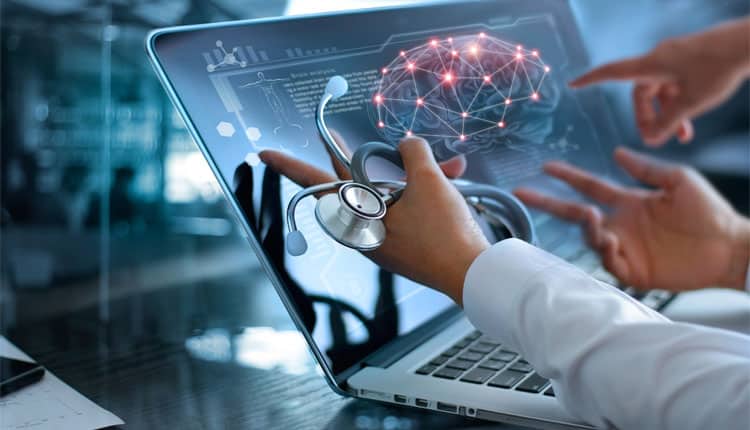By Mr Vipin Vindal, CEO, Quarks Technosoft
Artificial intelligence (AI) has emerged as a transformative force, poised to redefine the paradigms of diagnosis, treatment, and disease management. According to the World Economic Forum, India’s AI expenditure could amount to $11.78 billion in 2025. According to the same source, the capabilities of AI in the field of healthcare are quite impressive. The AI in Healthcare market is anticipated to proliferate from $14.6 Billion in 2023 to $102.7 Billion in 2028. The continuous evolution in technology propels the convergence of AI and healthcare. This persistent advancement opens up possibilities that could fundamentally reshape medical care delivery.
Hence, the horizon of AI in healthcare is brimming with potential, elevating diagnostic precision to streamlining administrative functions.
Machine Learning: Powering personalised healthcare
At the helm of AI’s influence in healthcare sits machine learning. It stands as an offshoot branch of AI where systems learn from data and make predictions of their own, from which the choice ultimately comes from data. These algorithms in medicine give pivotal data to our medics. The data is derived from different sources, such as medical records, genetic details, and diagnostic imagery. These algorithms go through the vast array of information to pick out patterns and tell doctors details that patients ne
Besides treating diseases, machine learning is the way to achieve a step towards personalised medicine. Through the machine learning tool, disease management is personalised according to patient-specific data provided, allowing therapeutic programs to be fine-tuned for maximum performance while side effects are decreased. To illustrate, the patient’s genetic code can be analysed and the emergence of particular markers beside the patient’s response to other medics.
Moreover, machine learning stands poised to revolutionises early disease detection and prevention by identifying subtle patterns in patient data indicative of potential health risks. By flagging individuals predisposed to certain conditions, these algorithms empower proactive interventions and lifestyle modifications, thereby mitigating disease onset and progression.
Natural Language Processing: Unlocking insights from unstructured data
Natural language processing (NLP) is emerging as another frontier in the field of AI-powered healthcare. It allows computers to analyse human language, such as clinical documentation, research material, and patient narratives. NLP speeds up information retrieval, automates documentation workflows, and aids in clinical decision-making by extracting insights from unstructured data.
NLP-enabled technologies have the potential to streamline healthcare procedures. It automates administrative tasks and reduces documentation requirements for healthcare providers. NLP systems, for example, may automatically generate patient encounter summaries by extracting key information from clinical notes for clinicians to evaluate.
NLP stands to enhance medical research endeavours by analysing vast repositories of scientific literature, unveiling hidden correlations, and accelerating the discovery of novel therapies. Researchers can leverage NLP-powered tools to identify emerging trends in healthcare, disseminate knowledge across the medical community, and catalyse advancements in patient care.
Robotics: Redefining Surgical Precision and Rehabilitation
In the AI-powered healthcare sector, a powerful catalyst is represented by robotics, which means that its capabilities will improve the quality of surgery, rehabilitation and patient care. As per a report, the global Medical Robotics Market currently stands at $13.19 billion in 2023. With a compound annual growth rate of 15.69%, it’s expected that the industry will be worth $52.41 billion by 2032 – with hospitals holding the largest market share.
Surgical robots, after being responsible for imagining hands and robotic arms, handle complex operations that are considered impossible for human surgeons, as they can achieve better precision and delicacy. Artificial intelligence and robotic surgery are considerably transforming the future of surgery and other medical treatments however there are some concerns over ethical and legal issues regarding their usage.
In conclusion, the combination of AI and healthcare will result in an advanced future where better patient outcomes will be realised. In addition, clinical workflow will be more efficient and medical research and finding cures will be developed. On the other hand, it is of utmost importance for us, as health providers and those in charge of transforming this hyperbole, not to overlook ethical, regulatory, and social concerns. Patient data privacy, biases in models, and ethics are all equally important in the transition of AI to healthcare and are all non-negotiable requirements for a responsible and accountable AI in healthcare.
As the boons of AI in healthcare unfold, health professionals use technology to their advantage in both practice and patient care, thereby ensuring effective and loving care for people worldwide.

